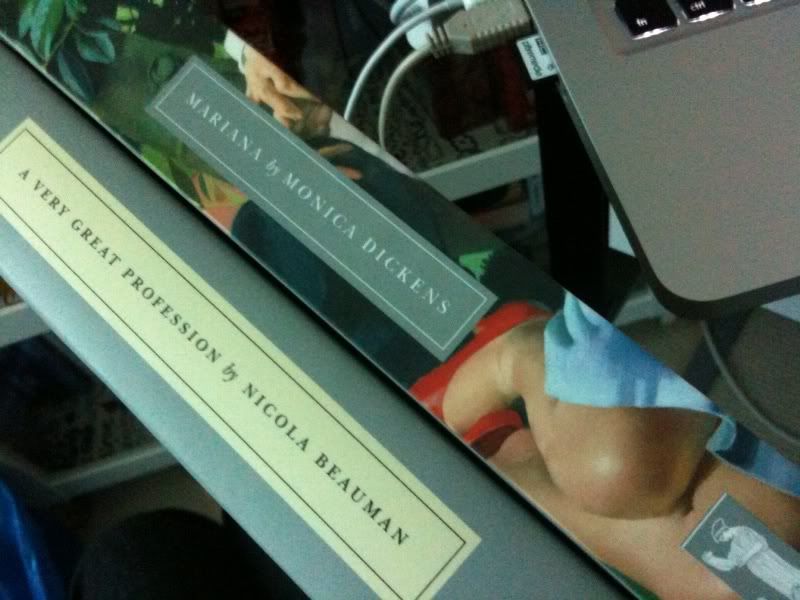It doesn’t take a parent to understand that parenting is hard, choices are made, trade-offs are inevitable, and sometimes there are ethical dilemmas. And, what does doing what’s best for your child mean, anyway? And, how do you make these decisions against the backdrop of World War II?
These are the topics that Barbara Noble tackles in her 1946 book, Doreen. The titular character is nine years old and lives in London with her mother during the Blitz. At the time, the British government enacted Operation Pied Piper to get children safely out of the city to the countryside. But, Doreen’s mother Mrs. Rawlings, a proud intelligent cleaning woman, doesn’t know anyone in the countryside, and worries incessantly about her daughter’s safety through the frequent nightly strikes.
As luck would have it, when she unloads her troubles to an office worker while cleaning the bathrooms, a potential solution emerges: the office worker’s brother and wife live out in the countryside, and they would be willing to take the nine-year-old girl in. The couple, Mr. and Mrs. Osborne are childless, but not out of choice.
And, so, the “timid little rabbit” that is Doreen heads to the countryside without her mother to a brand new life. For the first time, she has her own bedroom, a garden to play in, a toolshed, and a doting couple of substitute parents in Geoffrey and Francie Osborne. Even Geoffrey, previously indifferent to the prospect of having a child in the house, takes to the mild-mannered polite girl, and a friendship between the two blossoms. Doreen does her best to blend in, and not show herself to be uneducated or ignorant, but the quality of life between her London life and new life are apparent. But, her foster parents don’t care about that and focus on raising the child to the best of their ability, be it teaching her new things, introducing her to new experiences, or providing for her. Doreen returns the affection. They are also careful not to overstep by giving her gifts her mother would not be able to afford.
Yet, the undercurrent of tension exists.
Doreen’s mother visits her daughter over Christmas, and the Osbornes have an entire conversation about where she should eat her meals: in the kitchen or with them (Mrs. Rawlings chooses to have her first meal alone in the kitchen). The office-worker who set up the arrangement with Doreen worries that by turning the child to their “class”, they are fundamentally giving her a disadvantage to the world that is waiting for her when the war ends—and it’s unfair to her mother Mrs. Rawlings.
When Mrs. Rawlings visits, she doesn’t try to fit in with the family like Doreen, but is “particular” and proper, knowing that her place isn’t with the family. She resents her daughter’s affection for the Osbornes, though. She visits again a few months later when Doreen is ill, and realises that her daughter’s comfort levels with these strangers make her increasingly uneasy, “arguing, rationalising the pain in her heart.”
"It was only now, since she had realized the place Doreen occupied in this household, had watched her with the Osbornes and measured their concern for her, that she understood at last how serious their rivalry had become. This discovery was terrifying to her.”
The solution? Doreen should return with her to London, a clean break from the Osbornes. The child doesn’t have a say in this, nor do the Osbornes.
To me, the solution is insane. In the countryside, the Doreen is happy, healthy, safe. In London, one of the child’s dearest friends died in one of the attacks. The stakes aren’t just about the child’s quality of life, but the child’s life itself. And, for her mother’s fears about the child getting ideas above her station to trump the safety of the child seems insane. But, Mrs. Rawlings is a proud, sensible woman, and one can’t help feeling sorry for her situation either. These aren’t easy decisions, and these aren’t easy times.

 I've been meaning to read a Laski for a long time, and I finally picked this book out of my shelf, just to help me return to the world of reading - one of my many loves that I've been ignoring recently. And on finishing it, I was gently reminded as to why I love reading so much.
I've spent the past couple of months literally obsessing over things, and trying to make a life-changing decision (career-wise). However, while reading (and on finishing) this book, I almost immediately started focusing on the points it raises and the questionable character of this book's protagonist. Annoyingly, I can't seem to make my mind up about where I stand.
I've been meaning to read a Laski for a long time, and I finally picked this book out of my shelf, just to help me return to the world of reading - one of my many loves that I've been ignoring recently. And on finishing it, I was gently reminded as to why I love reading so much.
I've spent the past couple of months literally obsessing over things, and trying to make a life-changing decision (career-wise). However, while reading (and on finishing) this book, I almost immediately started focusing on the points it raises and the questionable character of this book's protagonist. Annoyingly, I can't seem to make my mind up about where I stand. I bought this book back in January, simply because the blurb likened it to
I bought this book back in January, simply because the blurb likened it to 


